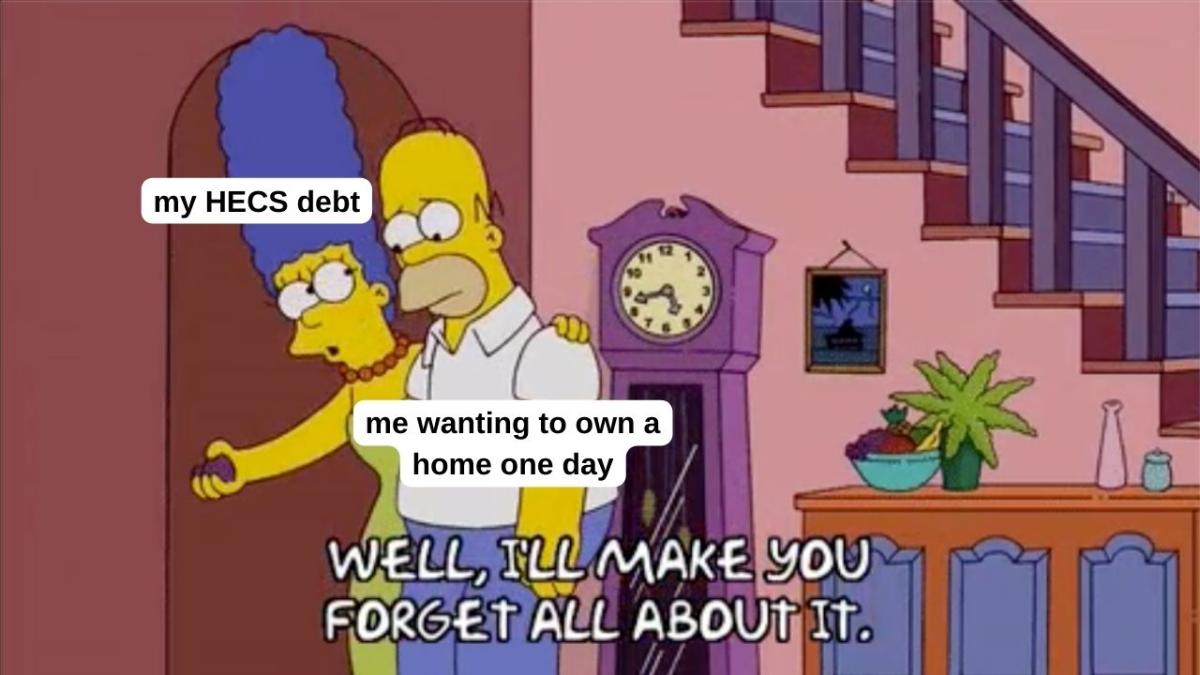
The Federal Governments’s Higher Education Loan Program (HELP), which you probably know as HECS debts, have grown so much over the years that they’re now affecting people’s eligibility for home loans. As if nabbing a house didn’t already feel impossible.
According to Guardian Australia, 72 per cent of people who have a HELP or HECS debt owe the federal government more than $20,000 — which is a huge jump compared to previous years. In 2005, only 47.51 per cent of people owing more than $20,000. According to the ATO, the number of people who owe more than $50,000 in HECSs or HELP debts has also increased.
There’s a few reasons debts are growing: universities hiking prices, changes to repayment requirements, and of course, inflation — just like all the other costs of living dramas. Debts went up by 3.9 per cent just this June, per Guardian Australia.
Obviously, it sucks to be in debt. It sucks even more to be in debt of tens of thousands of dollars, which is growing at a faster pace than you can pay it. Especially because the government has been lowering repayment requirements over the years, meaning you may have to start paying your HECS debt back on a pretty measly salary (right now, that’s $48,361), which doesn’t exactly help you save.
But now, because of the sheer size of many a HELP debt, people are also finding it’s affecting their (already precarious) chances of buying a home.
“It’s more of a liability than it used to be,” Mortgage Choice’s David Thurmond told Guardian Australia.
“I’ve been a broker for about 15 years and when I first started, HECS debts were quite uncommon.
“If there was a debt it was quite small, maybe $5,000 or $10,000. That’s grown over the years and now we’re seeing average debts of $20,000 to $40,000.”
Thurmond said having such large debt hinders your ability to get a big loan — which you would obvs need if you were trying to mortgage a home.
“The HECS repayment is like a credit card payment or a car loan – it’s a liability that the banks have to account for, so it will decrease your borrowing capacity,” he explained.
He said once upon a time, your repayment plan wouldn’t be much of an issue if you were going for a mortgage.
“The repayments were never an issue – if we had them, they were a $20-$100 repayment per month,” he said.
“But now it’s like a $700 repayment per month.”
Fucking yikes.
Thurmond said some people were choosing to pay off their HELP debt before purchasing a house so they could get a bigger home loan — but obviously, not everyone is in that position.
Who knew that in our Lord’s year of 2022, we’d have to choose between getting an education or owning a home. Love this for us!







